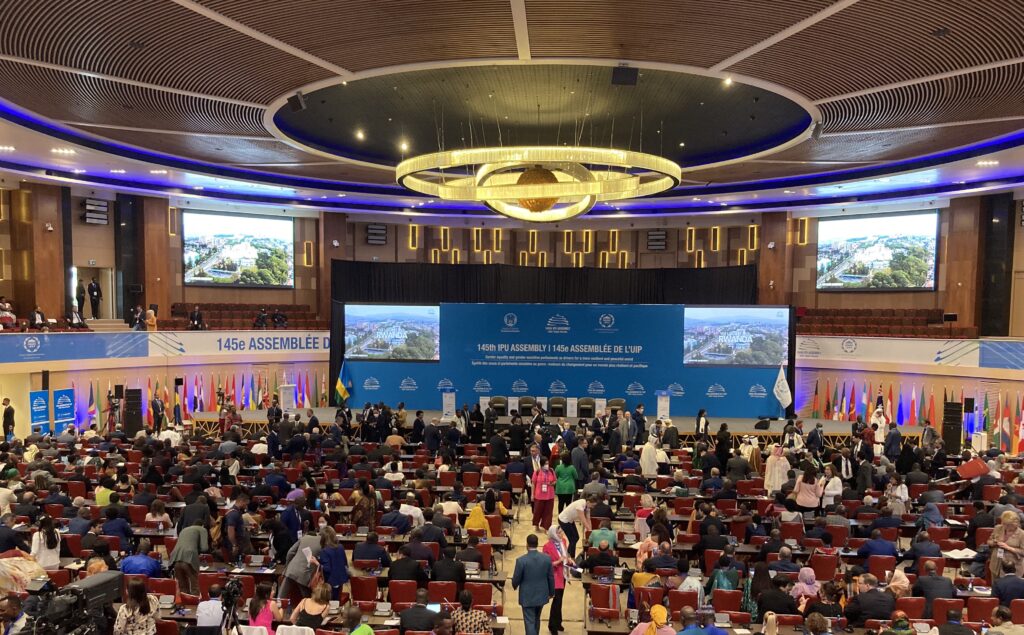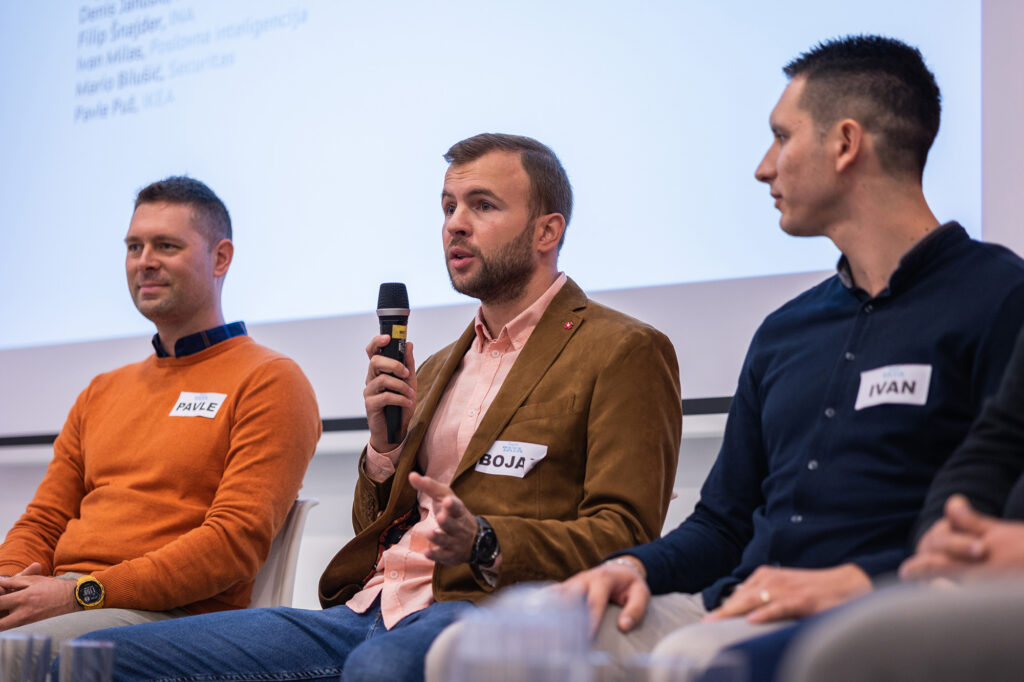Co-Coordinators Editorial

Greetings MenCare partners and colleagues. As we are drawing closer towards the end of 2022, I would like to express my heartfelt appreciation to each one of you for the amazing work that you are doing in your countries to promote the global fatherhood campaign.
This year has been an amazing one with the Co-Coordinators meeting with the Partner Council members in Coimbra to shape how MenCare will look like in the next coming years. The welcoming of Wessel as the MenCare officer has also paved the way for the global campaign to even reach all of you more than we have done before. I am truly looking forward to much more engagements with everyone in 2023.
Next year also promises to be a great year for MenCare with several events lined up including the launch of the State of the World Father’s report during WomenDeliver. We also look forward to hearing more amazing work that you are all doing across the world. With this said happy holidays and let’s engage more in 2023.
– Mpho Mabhena, MenCare Global Co-Coordinator; Regional Programmes and Network Unit Coordinator, Sonke Gender Justice

When I sat down to reflect on MenCare in 2022, I was struck by what a year of change it has been for the campaign. In my one year as Co-Coordinator of the campaign it is clear to me that the success of this global is the result of the member organizations time and commitment to the cause. The year began with a reflection of the 10 year review of the campaign to which many members contributed and became the driving force underlying the shifts that brought new energy. From the new governance structure that includes the Partner Council, to the campaign’s very first MenCare officer – the year has been full of movement towards building more visibility and innovative ideas for this cause. Building on the foundations set in 2022, I look forward to the coming year with anticipation and excitement. We will be launching our State of the World’s Fathers 2023 with primary data in over 10+ countries where we examine the ways COVID-19 shifted the meaning of caregiving. Program P continues to be widely implemented and in 2023, the program will also continue to assess its effectiveness in early childhood context (such as the Program P work in Colombia) as well as in workplace institutions (such as Program P@Work in India and Nigeria). We also remain steadfast in our path towards finalizing the MenCare Commitment. The campaign is deeply motivated to persuade governments and private sectors to sign onto this commitment so we can truly have the systemic shifts needed to achieve equitable caregiving. Finally, in 2023 we look forward to opportunities where we can connect with member organizations – virtually and in-person – at global or regional events or even in our new webinar series. It is the community of members that give light and meaning to MenCare – and I look forward to many such opportunities to engage with you all. Happy New Year and may 2023 continue to move the needle in the right direction.
– Taveeshi Gupta, MenCare Global Co-Coordinator; Director of Research, Evaluation and Learning, Equimundo
MenCare Tea Time Meetings
Sometimes the most interesting conversations happen during the breaks at conferences. This section documents a few that I have had over the past few months in my role as MenCare Officer. Please follow the links to see the full descriptions of the events and partners where applicable.
– Wessel van den Berg, MenCare Officer, Equimundo
Inter-Parliamentary Union Assembly 145 (Kigali) – Zeina Hilal
During the recent Inter-Parliamentary Union (IPU) assembly in Kigali in October, I had the good fortune to speak with Zeina Hilal, the IPU Manager of Gender and Youth Programs. While we sat in the back of the bus on the way to the Kigali conference center she explained to me how the IPU works. I had mentioned surprise at the vehemency of a particular debate I had observed in one of the working groups and she replied that it was in fact quite mild compared to some of the debates that often occur in this multi-lateral space. The tension between Ukraine and the aggression of the Russian Federation was a clear theme for the assembly. Zeina is responsible for the development and monitoring of Gender equality in parliaments and the Plan of Action for Gender Sensitive Parliaments launched in 2012. This assembly was focused on a ten-year review. I had the opportunity to present the MenCare Commitment to the assembly LINK NEWSITE, and we were very happy to see some of our language being adopted as a part of the new Kigali Declaration. Zeina mentioned during our chat that it is useful for the gender focused internal advocacy agenda to have input from civil society such as the suggestions we made, and even more so if it is actionable policy suggestions based on evidence like the State of the World’s Fathers reports.
In November, I participated in two back-to-back meetings hosted in Nairobi, on the theme of men and caregiving in Eastern and Southern Africa. It was very interesting to see the difference between the two events. The first meeting was focused on evidence-based group interventions, and mostly attended by organizations working in the early childhood development sector. The second meeting was focused on feminist advocacy for policy reform, and mostly involved women’s rights and gender justice focused advocacy organizations. I was surprised to see many of the same organizations and people attending both meetings, and it clearly showed me the intersectional value of gender transformative work with men and care.
Learning Convening on Male Engagement in Caregiving in Eastern and Southern Africa (Nairobi) –Beatrice Ogutu
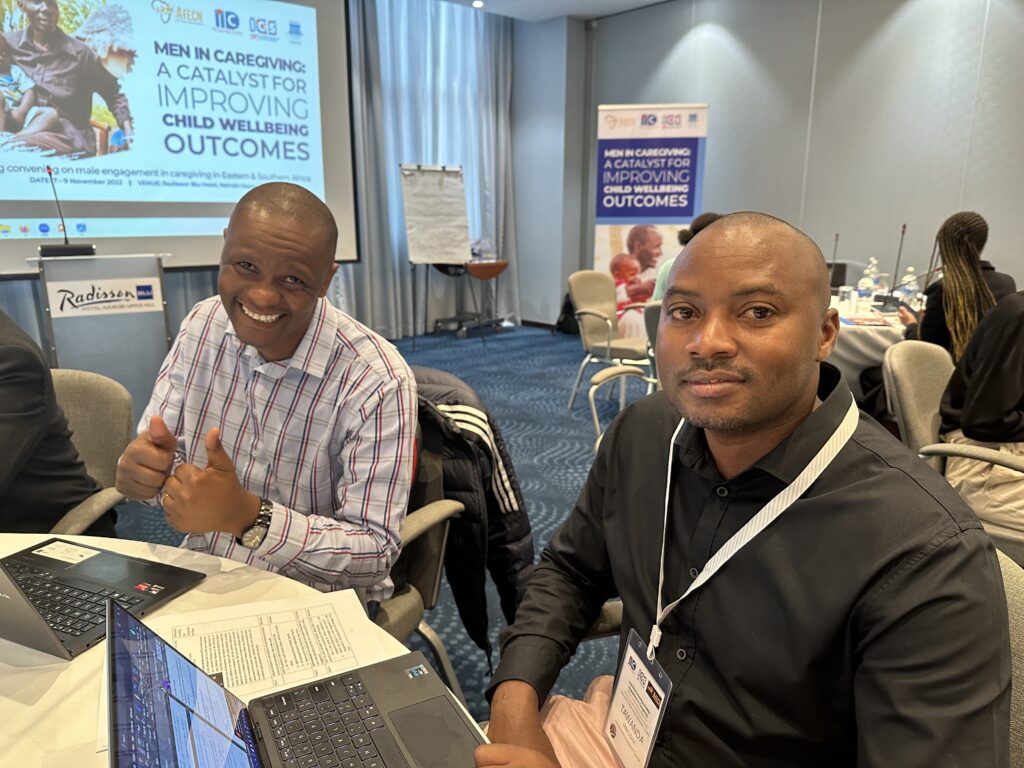
In one of the sessions of this creative and inspiring meeting we had the opportunity to present our projects with posters. My poster presentation emphasized the MenCare Commitment as an overarching policy instrument for organizations to work with, and a structural opportunity to create an enabling environment for intervention scale up and individual change to happen. After the poster sessions I was joined by Beatrice Ogutu – Director of ICS-SP. In addition to learning about many shared connections with various MenCare colleagues, it was exciting to hear from her about the valuable policy advocacy work that ICS and partners are doing in Kenya to promote a gender transformative approach to be integrated into public national parenting policy and programs. A key focus for children’s rights civil society organizations is the finalization and implementation of the Kenyan National Policy on Family Promotion and Protection. We agreed that this may be a policy that could match the MenCare Commitment policy measure to establish national care policies and frameworks. ICS-SP have also expressed interest to join MenCare, and we look forward to such an influential partner joining the campaign.
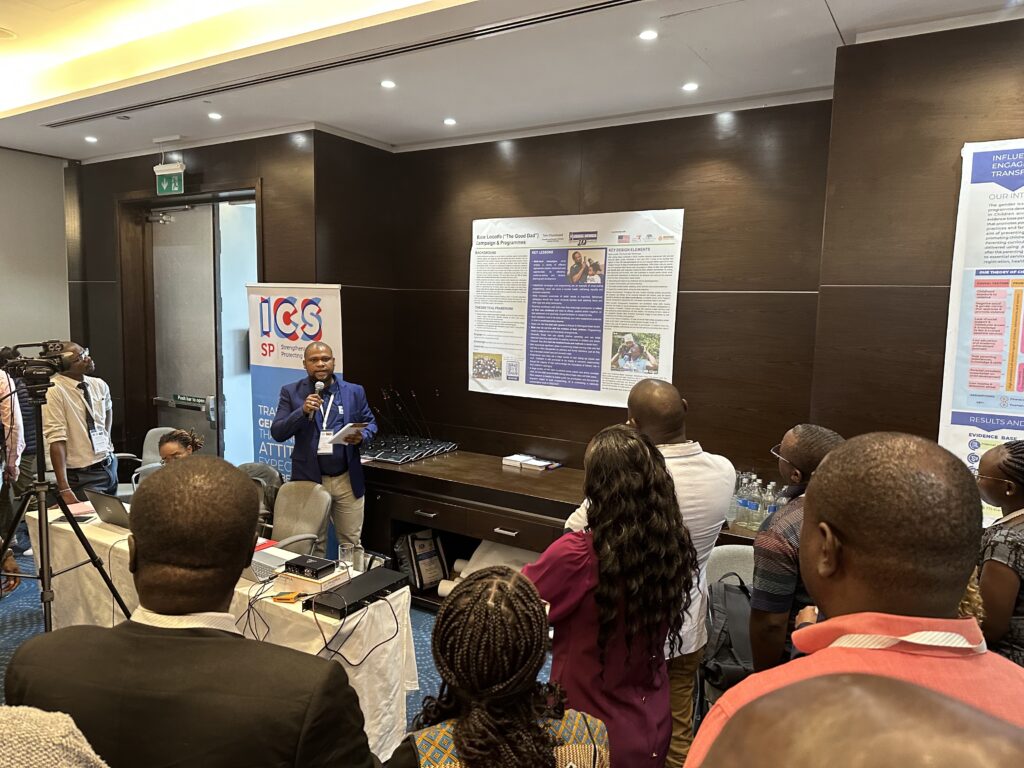
Gender Equality, Work, Policy and Caring for the Family from Birth to Old Age workshop (Nairobi) – Samia Melki
The second meeting I attended in Nairobi brought partners from the MenCare Campaign and MenEngage Africa Alliance together with women’s rights organizations who are members of the Solidarity for African Women’s Rights (SOAWR) network, coordinated by Equality Now regional office in Nairobi . The meeting was hosted by Equality Now, the WORLD Policy Analysis Centre and Sonke Gender Justice.
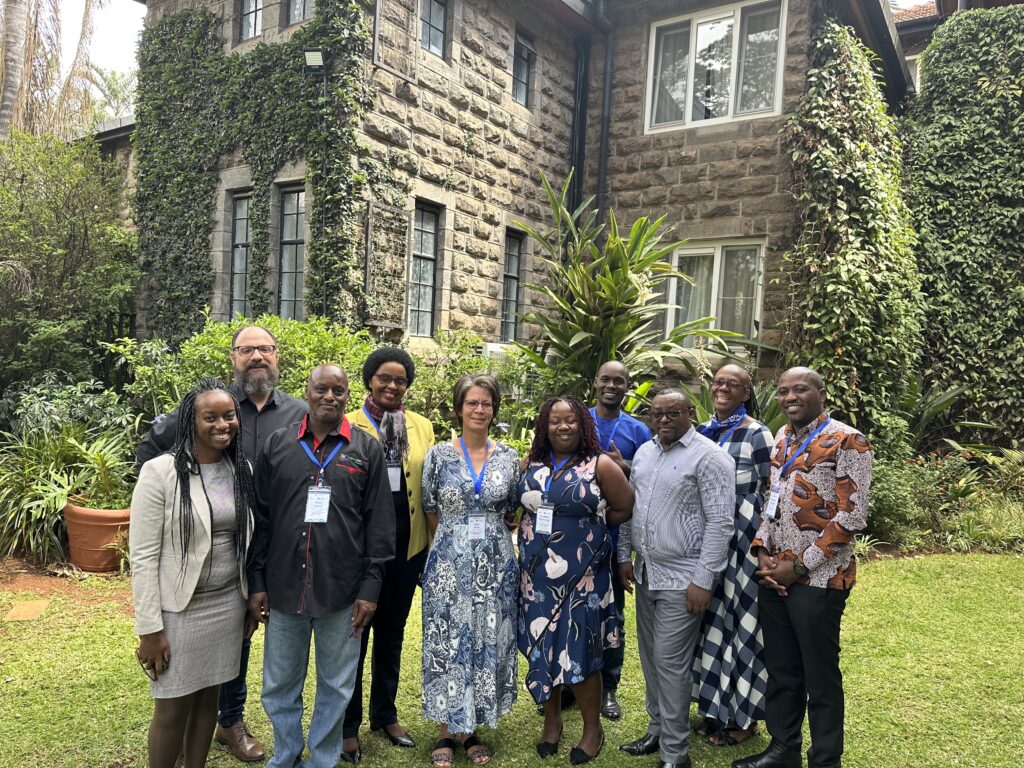
SOAWR members advocate for the ratification, domestication and implementation of the Maputo Protocol. The WORLD team had presented fascinating data about progress towards a global landscape of policies in support of gender equal caregiving, including a focus on support for workers in the informal economy.
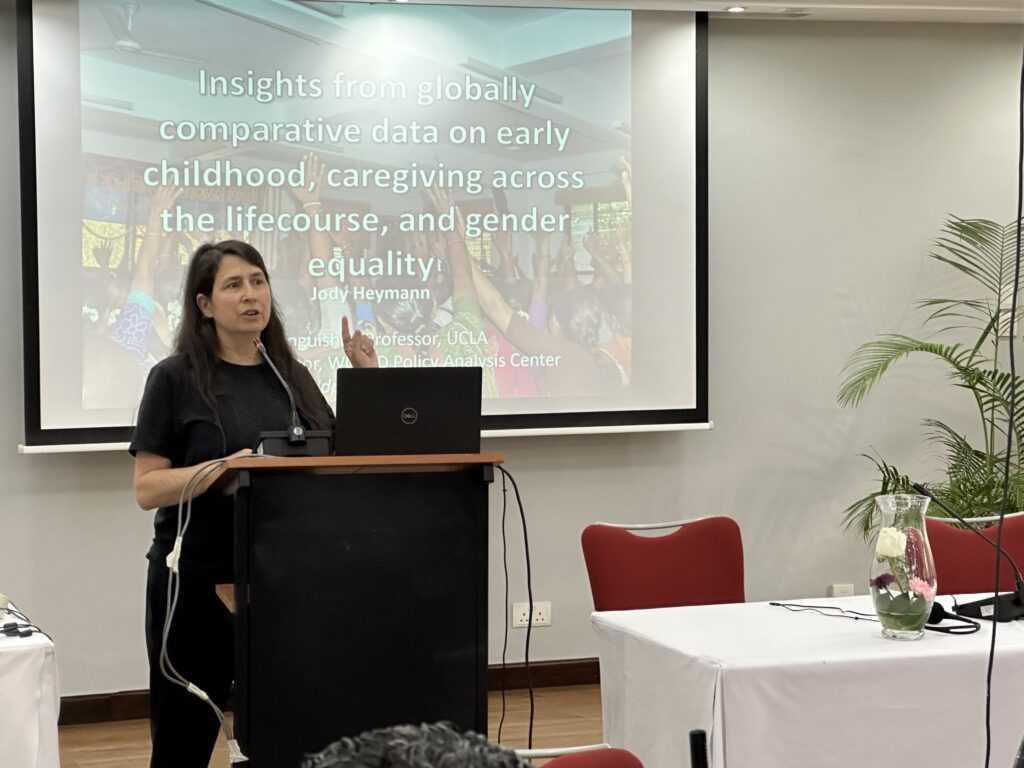
Over lunch on the first day I spoke with Samia Melki, the director of KADIRAT. KADIRAT is based in Tunisia and has long been working on advocating for women’s rights in the Middle East and North Africa. Samia explained to me how SOAWR members work with the Maputo Protocol*, and mentioned the recent ratification missions to Egypt and Morocco, and how a ratification mission works to facilitate a state’s engagement with the protocol. I had presented the MenCare Join the Movement film, and we discussed how men can be engaged as allies at the household level, but also as supporters for women’s rights and care equality as political leaders. Samia mentioned that 2023 will be the 20th anniversary of the Maputo protocol, and we decided to explore collaboration between MenCare partners and SOAWR partners in countries* where a Maputo Protocol process is under way.
*Footnote: If any MenCare partners in Africa are working on the Maputo Protocol, please let me know, so that we can take up the conversation with SOAWR collectively.
Partners’ News
Croatia
Father’s Leave in Croatia
As of August 1 2022, all fathers in Croatia are entitled to paid paternity leave of 10 or 15 days, depending on whether they have one child, twins or more children born at the same time. Paternity leave is not mandatory, but if a father chooses to take this leave, his employer must grant it. This right is governed by the Maternity and Parental Allowances Act. Father’s leave can be taken during the first six months of the child’s life. Fathers who choose to take paternity leave will receive their full pay at the expense of the state budget and not the employer.
This news comes after several years of advocacy efforts by Status M and other organizations which continue to petition the government to enact more policies promoting the involvement of men in care.
In September Status M organized a national conference, which gathered representatives of employers, state institutions, research community and NGOs, in an attempt to encourage cross-sectorial dialogue on how to create an enabling environment where all fathers can use their right to father’s and parental leaves.
“We are very pleased that Croatian fathers finally have the right to father’s leave. It’s a great step towards a world of equitable parenthood. At the same time, we are sorry that the government missed the opportunity to make a more ambitious step in that direction. Ten days is really a minimum and we will continue to advocate for a longer father’s leave.” – told Anamarija Sočo, president of Status M. She also underlined the need to stipulate father’s leave as mandatory.
The government recently came out with the number of fathers who have so far used their right to father’s leave. The statistics are encouraging but there is still a lot of room for improvement.
“In our direct work with fathers, we see that many men aren’t aware of their right to father’s and parental leaves. Lots of fathers don’t have even the most basic information about these rights.” – said Ms Sočo. That is why Status M launched a MenCare video campaign which promotes active fatherhood, equal care and father’s leave. The organization hopes the videos will reach and galvanize men across the country to take on a more equitable role in their family life.
Watch three new MenCare films from Status M below and visit the Status M website to find out more.
Eswatini
Babe Locotfo: The Good Dad Campaign – Challenging narratives of fatherhood
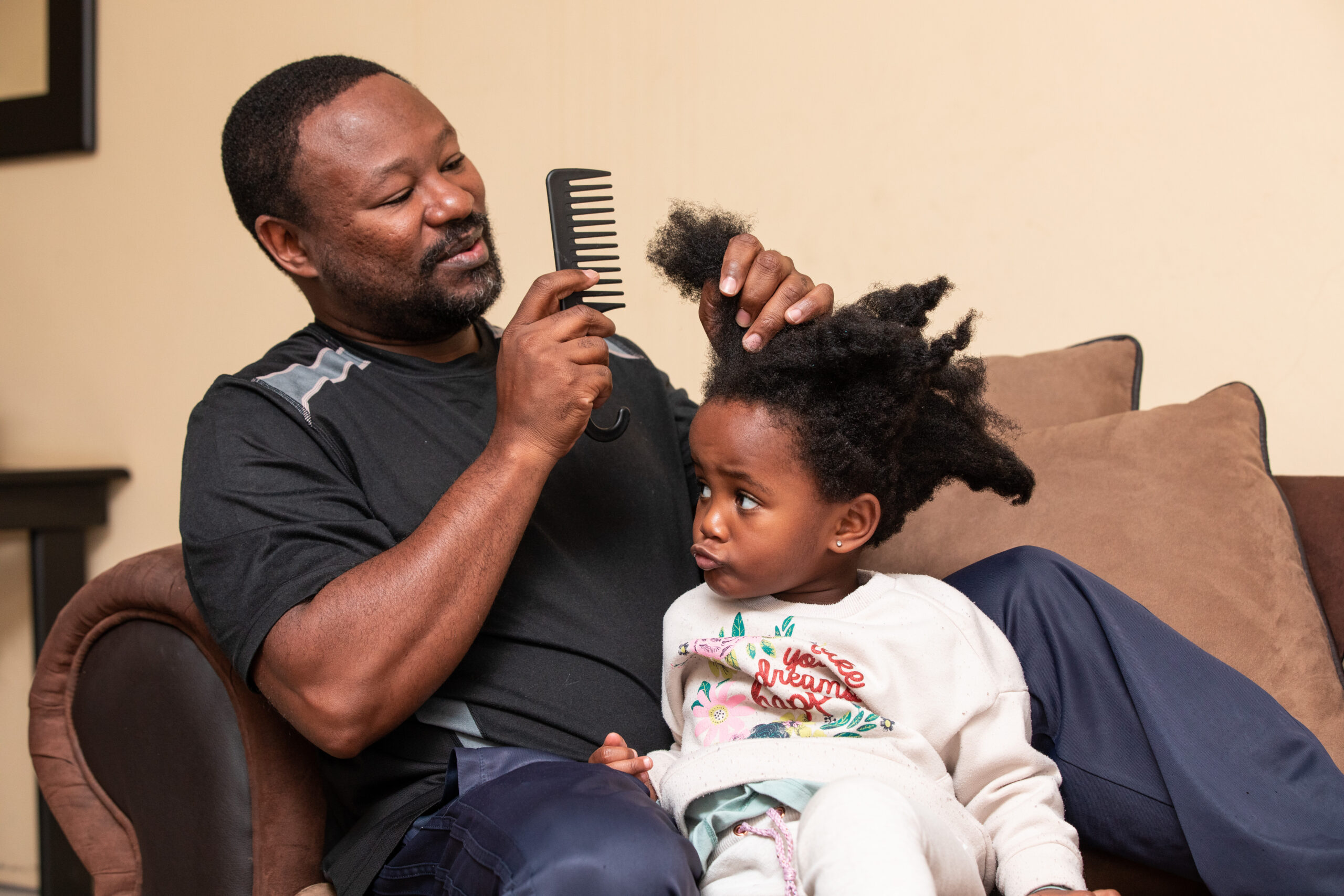
Many men would say that becoming a father is one of the most monumental time(s) of their lives, a time of reflection on your habits, your relationships, on the kind of man you want to be. It is a critical moment for behaviour change and self-improvement. Fathers have the motivation and the expectation to take necessary steps, and navigate the various pressures of work, family and relationships, and be a present and positive father-figure for the next generation. Research tells us that, should he be able to successfully balance these pressures, father-figures can change not only the lives of their family, but often his own life for the better. In a country where only 22% of young people live with both biological parents, programs and campaigns which encourage family unity are a vital, if often overlooked, element of Eswatini’s social, economic and educational development.
Since 2019, Kwakha Indvodza, a national NGO and MenCare partner in Eswatini, has implemented the Babe Locofto (“The Good Dad”) campaign to encourage, challenge and celebrate what should be one of the most basic of human instincts in men – to be present and positive influences in their children’s lives, and to encourage women and other men to permit fathers the space to explore this new responsibility. Children aged 10-16 also joined in the campaign, sharing their insights on fatherhood through the annual “Letter to My Father” Competitions, where hundreds of young people wrote to fathers and father-figures, present and absent, to share the influence their father-figures had on their lives. Most importantly, KI had the opportunity to celebrate and mentor new and expectant fathers through three-day fatherhood workshops.
Throughout the project, role models were identified and featured on KI’s busy social media pages, where each week, a different man would be the focus of our Fatherhood Fridays campaign. To-date, the campaign has reached over 230,000 emaSwati, with many prominent figures, including artists, influencers and political figures endorsing and joining the campaign, some with songs, poetry and visual art, while more in-depth testimonials are captured in an on-going research project which will be published in early 2023.
Finally, the project told stories through the art of photography, with images telling stories where words fail. Borrowing from and localising the Swedish Dads exhibition, these photographs showcased stories of hope and resilience, of positive fathers going above and beyond to play, provide, protect, and be positive. These stories and experiences were instrumental in the production of locally adapted Babe Locotfo Facilitators manual, loosely based upon Equimundo’s best-practice Program P Manual as well as KI’s decade of experience implementing programs for men and boys across Eswatini.
To hear from our men who participated in the project, watch this video. Follow Kwakha Indvodza’s work on our website or search for us on all major social media channels.
United States
New Report: Who Cares About America’s Male Caregivers?
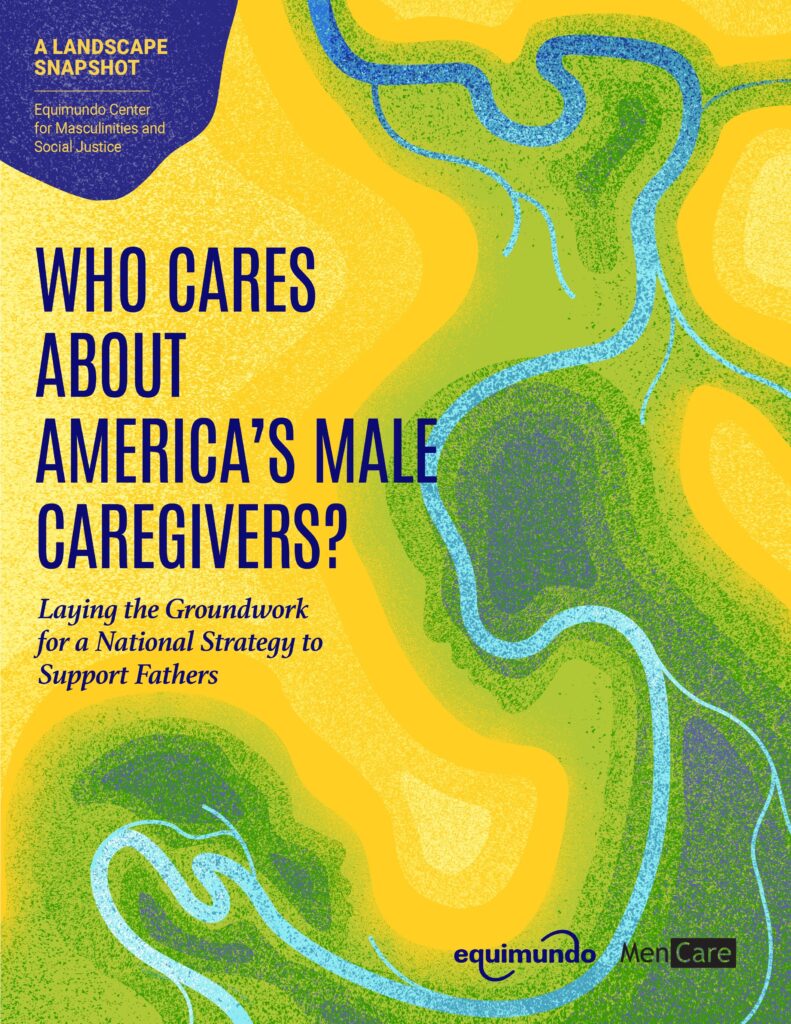
A new report by Equimundo, Who Cares About Male Caregivers? asks: what is the current landscape of programs, approaches, and platforms for supporting fatherhood and men’s caregiving in the US?
Caring for each other – in our homes, workplaces, schools, and elsewhere – is something we all need and helps us all thrive. Households across the U.S. have felt even more overburdened in terms of care throughout these past few years of pandemic. Care has become more visible and even more obviously central to our lives as we’ve schooled our kids at home, seen our homes turned into makeshift offices and classrooms, and worried about our work, education, relationships, and futures. In this context, the lack of support for all caregivers has become even more apparent.
The report takes a snapshot of this field as a step toward building greater coordination and collaboration across those working in fatherhood and male caregiving in the US, and provides recommendations for greater attention to this vital space and issue. The US landscape of fatherhood and support for men’s caregiving is a small one relative to the country’s size and the scope of related issues. For an area so vital to so many households – and one so strongly related to family poverty and gender equality – funders and governments pay far too little attention to fatherhood and men’s caregiving.
This report lays the groundwork for a national effort toward achieving healthy expressions of masculinity and greater equality and social justice in the US by focusing on men’s capacity to give care, which often (but not exclusively) manifests in the practice of fatherhood in all its diversity.
Welcome to MenCare!
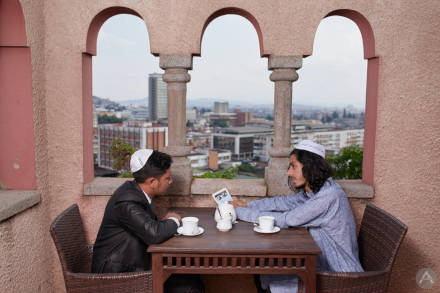
Alternatives (Madagascar)
ALTERNATIVES launched a campaign engaging male artists and influencers to communicate messages of support for women’s rights and the fight against gender-based violence, which allowed many followers to change their perception of men in society.. ALTERNATIVES plan to set up a “papa champion” programme, which consists in raising the awareness among fathers on good attitudes to adopt and the role of father, particularly in terms of maternal health and hygiene, childbirth, the fight against gender-based violence, and child care.
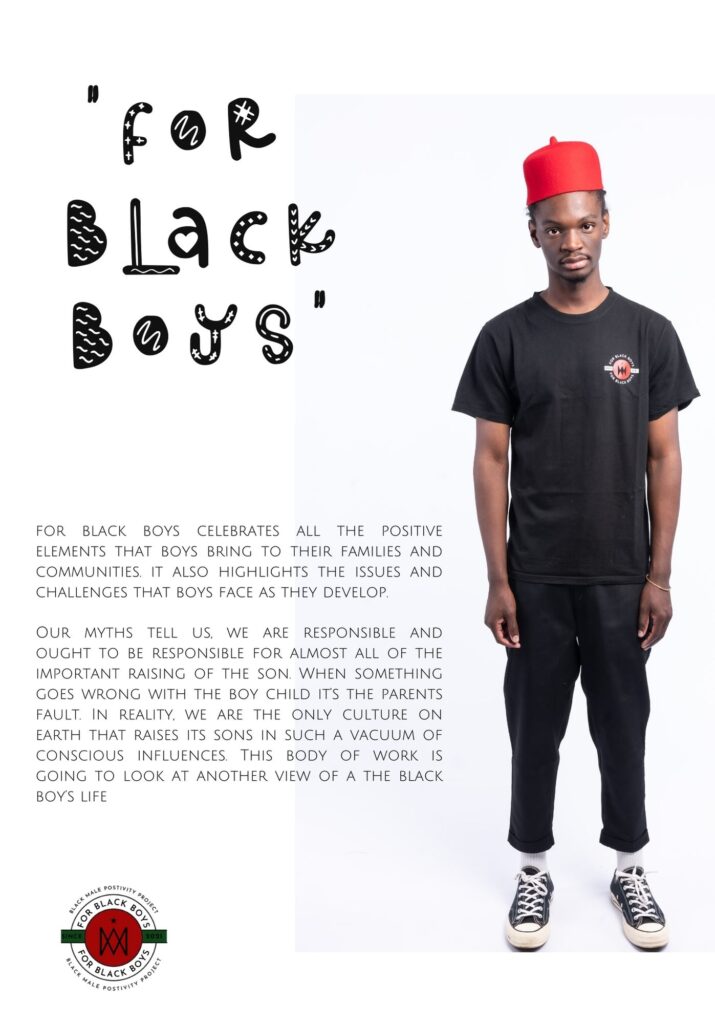
Black Male Positivity Project (South Africa)
Our objective is to inspire, celebrate and empower black males. There is great power in black male positivity.

Daddy Awards (South Africa)
The Daddy Awards South Africa is a celebration of fatherhood and an initiative that aims to support fathers through a recognition system. Our movement, #WESEEYOU, is for all the single, married and non-biological dads that step up and play the fatherly role. The movement aims to break the cycle that broken children are benefactors of broken, absent fathers.
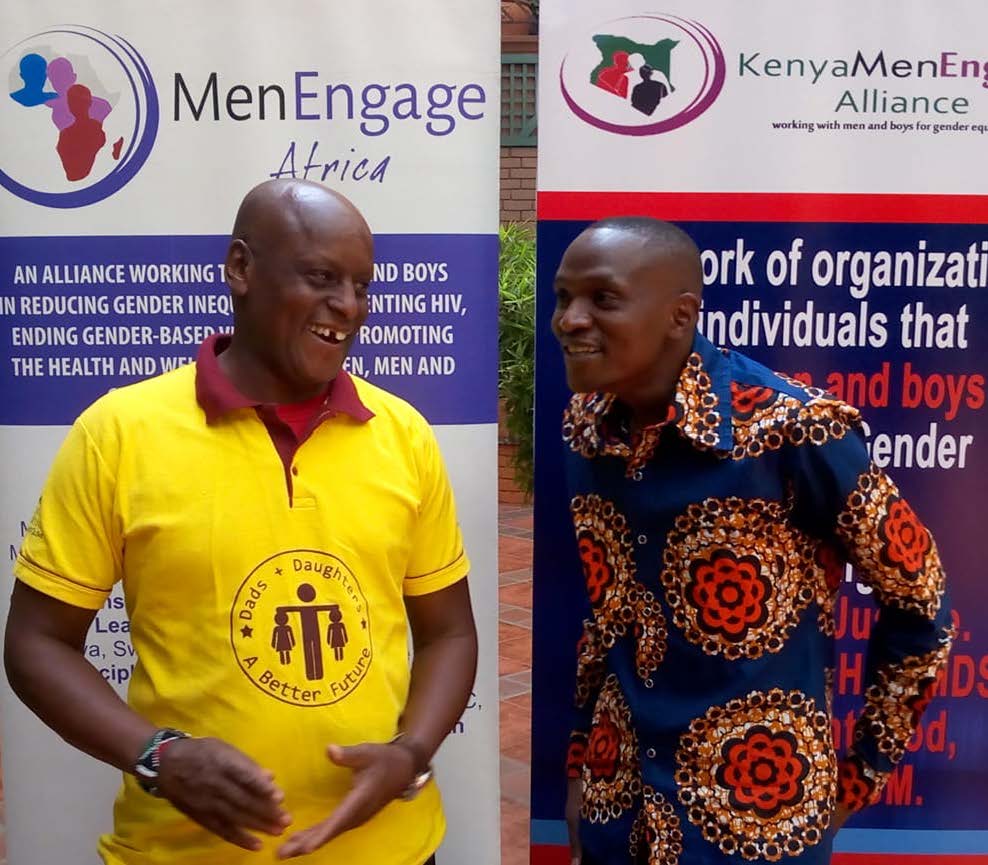
Margaret Wanzuu Foundation (Kenya)
Formed in 1997, we are a non-partisan non-profit organization that seeks to address gender based violence. Located at the grassroots we especially concentrate on cultural/traditionally constructed and permitted violence that affect women and girls.
The Margaret Wanzuu Foundation, together with Kenya MenEngage Alliance and the UCLA Bixby Program in Population and Reproductive Health, has designed a Baba Bora (“Better Fathers”) Project to address patriarchal structures that propagate FGM and consequently early/child marriage in the counties Migori, Narok and Kajiado Counties Kenya. The main objectives of the expanded Baba Bora Project are to reduce early marriage, reduce FGM, reduce gender-based violence, and increase gender equality in the family.
Get Involved!
There are many different ways for you to join MenCare in making a difference around the world. Are you part of an organization that wants to become an official MenCare partner? A government who wants to commit to accelerating men’s uptake of 50 percent of the unpaid care work? A business that wants to learn how to offer family-friendly policies and promote gender equality in the workplace? Or, are you a dad or caregiver who wants more tips on involved fatherhood? Learn how to join the movement to support involved, caring fatherhood.
